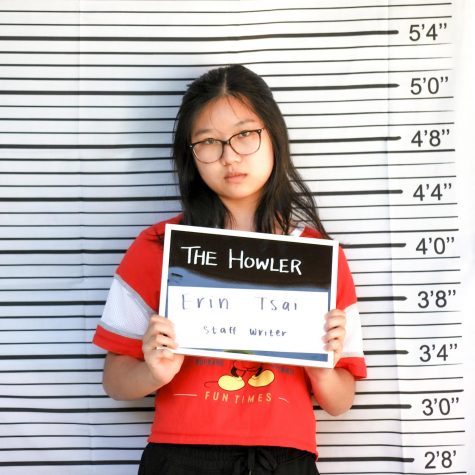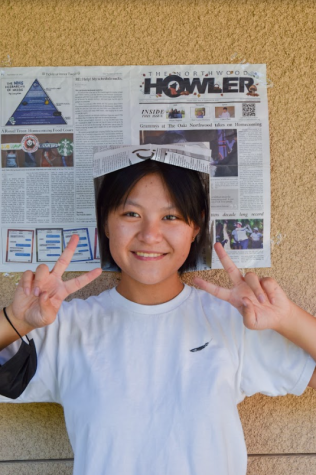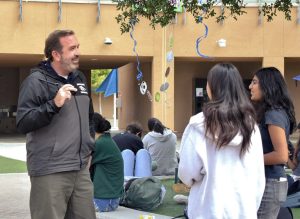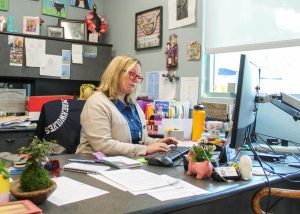Planting the seeds for terrariums
HANDS-ON: Seeds members are truly hands-on when it comes to plants.
May 9, 2022
As kids, we were often told not to play with dirt. But walk into Room 1002 on Thursdays during lunch, and you just might find students mixing containers of dirt with their hands and peeling apart clumps of moss.
This is just another meeting at Seeds, a club all about planting, gardening and working with plants in general. Although these are typically considered outdoor activities, Seeds has been bringing nature indoors by holding terrarium workshops.
“We’ve historically focused a lot on growing crops outdoors, especially in gardens for crops that people can eat,” Seeds vice president senior Alex Fu said. “But Irvine is a city without a lot of space, so we’ve recently been shifting a lot more towards indoor gardening.”
Seeds’s latest project comes in the form of terrarium workshops. Terrariums often come to mind as jars or otherwise sealed containers that create their own environments. In essence, they are self-sustaining ecosystems closed off from the outside world, where they’re self-functioning and have their own nutrient cycles—a miniature plant ecosystem, if you will.
“Terrariums are a great way of introducing people to gardening, since they stay small and anyone can have one in their own home,” Fu said. “In the past, I was pretty bad at gardening and couldn’t really keep much alive. Terrariums really gave me the opportunity to explore my interest in gardening as a whole.”
The first of the terrarium workshops held during lunch on Apr. 28 was focused on creating the substrate, or dirt, of the terrariums, blending organic materials such as orchid bark, moss and charcoal. Dirt may sound simple—just go outside and you’ll find some, right? But Fu, the organizer of the event, gave detailed explanations on every step of the process as well as reasoning for using the specific materials. For example, orchid bark was important for its aerating qualities, and activated charcoal was necessary for water filtration. Fu also gave explanations of the process and lectures about important environmental issues, such as the impacts of unethical peat moss sourcing.
“Alex is really knowledgeable and the way he talks is always engaging,” Seeds member junior Alyssa Wu said. “Seeds is a great place to take your mind off academics while at school.”
Whether it’s teaching people how to grow their own food, bringing the outdoors inside or just helping people stop their plants from dying all the time, Seeds aims to spread the love of plants to everyone.
“I hope people can take away from this workshop that gardening isn’t something that you have to have a yard to do,” Fu said. “Nature can be brought inside to your own home and can be displayed, used, showcased in any location to add a splash of greenery into whatever Irvine is.”
Subsequent terrarium workshops will be separated over multiple meetings. Attend the next Seeds meeting on May 10 to make your own terrarium.



![AAAAAND ANOTHER THING: [CENSORED] [REDACTED] [BABY SCREAMING] [SIRENS] [SILENCE].](https://thehowleronline.org/wp-content/uploads/2025/06/lucy-1200x800.jpg)






















































![AAAAAND ANOTHER THING: [CENSORED] [REDACTED] [BABY SCREAMING] [SIRENS] [SILENCE].](https://thehowleronline.org/wp-content/uploads/2025/06/lucy-300x200.jpg)